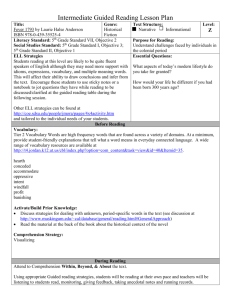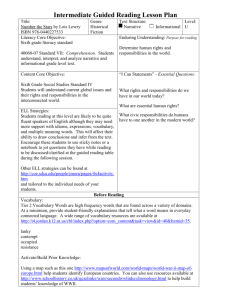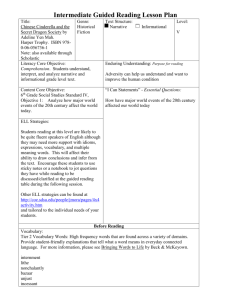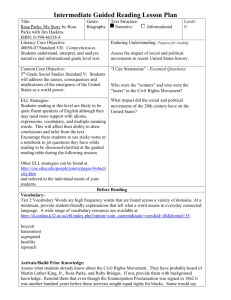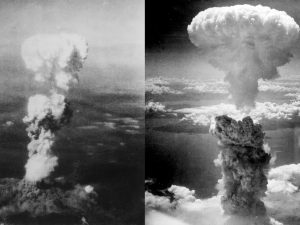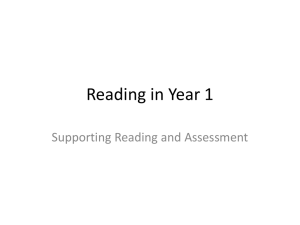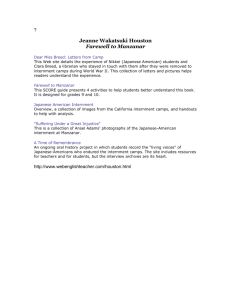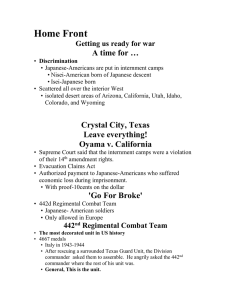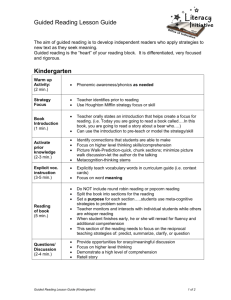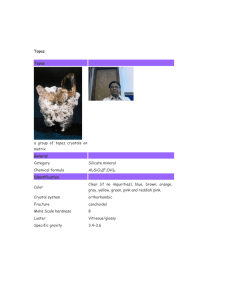My Friend My Enemy
advertisement
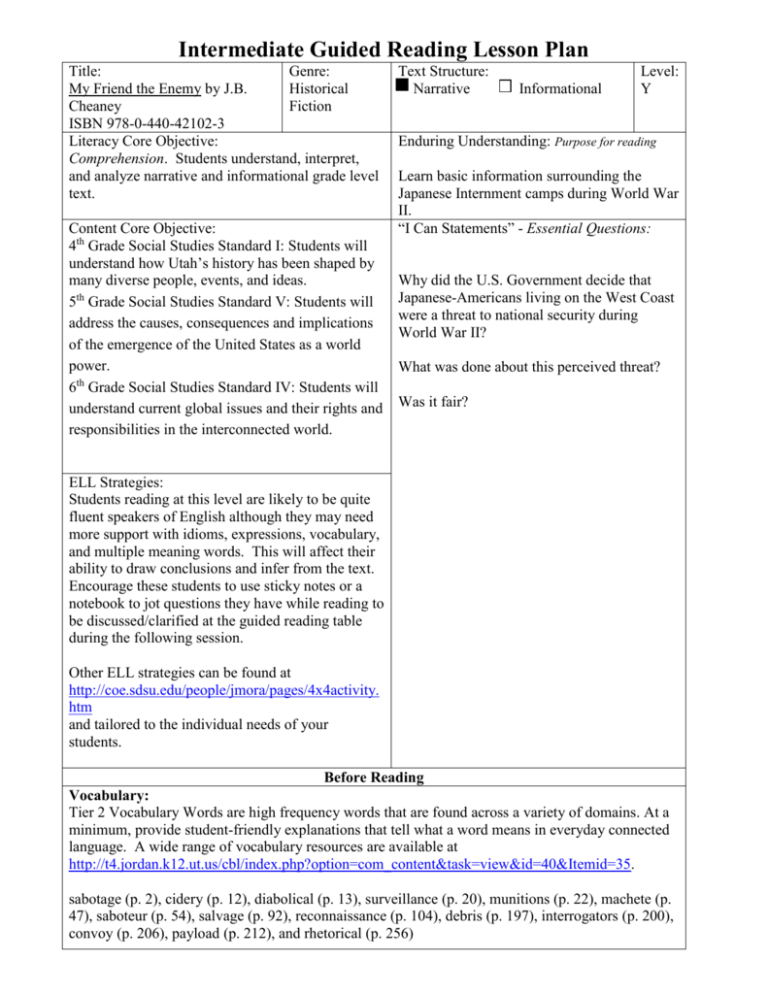
Intermediate Guided Reading Lesson Plan Title: Genre: My Friend the Enemy by J.B. Historical Cheaney Fiction ISBN 978-0-440-42102-3 Literacy Core Objective: Comprehension. Students understand, interpret, and analyze narrative and informational grade level text. Content Core Objective: 4th Grade Social Studies Standard I: Students will understand how Utah’s history has been shaped by many diverse people, events, and ideas. 5th Grade Social Studies Standard V: Students will address the causes, consequences and implications of the emergence of the United States as a world power. 6th Grade Social Studies Standard IV: Students will understand current global issues and their rights and responsibilities in the interconnected world. Text Structure: Narrative Informational Level: Y Enduring Understanding: Purpose for reading Learn basic information surrounding the Japanese Internment camps during World War II. “I Can Statements” - Essential Questions: Why did the U.S. Government decide that Japanese-Americans living on the West Coast were a threat to national security during World War II? What was done about this perceived threat? Was it fair? ELL Strategies: Students reading at this level are likely to be quite fluent speakers of English although they may need more support with idioms, expressions, vocabulary, and multiple meaning words. This will affect their ability to draw conclusions and infer from the text. Encourage these students to use sticky notes or a notebook to jot questions they have while reading to be discussed/clarified at the guided reading table during the following session. Other ELL strategies can be found at http://coe.sdsu.edu/people/jmora/pages/4x4activity. htm and tailored to the individual needs of your students. Before Reading Vocabulary: Tier 2 Vocabulary Words are high frequency words that are found across a variety of domains. At a minimum, provide student-friendly explanations that tell what a word means in everyday connected language. A wide range of vocabulary resources are available at http://t4.jordan.k12.ut.us/cbl/index.php?option=com_content&task=view&id=40&Itemid=35. sabotage (p. 2), cidery (p. 12), diabolical (p. 13), surveillance (p. 20), munitions (p. 22), machete (p. 47), saboteur (p. 54), salvage (p. 92), reconnaissance (p. 104), debris (p. 197), interrogators (p. 200), convoy (p. 206), payload (p. 212), and rhetorical (p. 256) Activate/Build Prior Knowledge: Use http://www.pbs.org/childofcamp/history/timeline.html to provide students with background information about the internment of Japanese-Americans during WWII. Comprehension Strategy: Summarizing During Reading Using appropriate Guided reading strategies, students will be reading at their own pace and teachers will be listening to students read, monitoring, giving feedback, taking anecdotal notes and running records. Attend to Comprehension Within, Beyond, & About the text: After Reading Discussion questions: See http://www.randomhouse.com/teachers/catalog/display.pperl?isbn=9780375814327&view=tg for a list of discussion questions and follow up activities. Attend to Comprehension Within, Beyond, & About the text: Content Core Integration:(Science, Soc. St., Math, etc.) Assessment: Activities: Watch the video “Topaz”. This is available on eMedia. To get to eMedia, log in to Students write a one page summary of the novel that includes at least five facts about the uen.org, click on Pioneer Library, and then internment of Japanese-Americans during eMedia. Search for “Topaz”. World War II. *Not all activities will be done in each lesson. Some lessons may take multiple days to complete. However, all students should be reading each time you meet.
